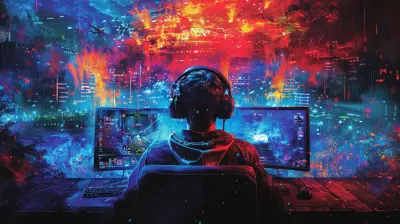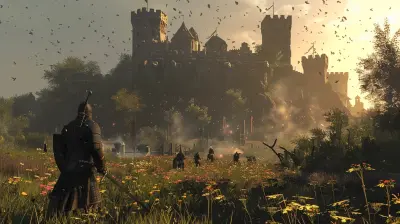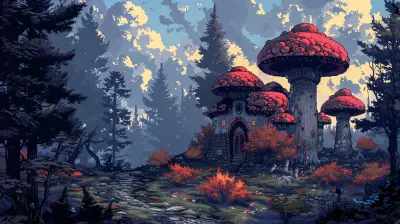Why Some Games Inspire More Passionate Communities Than Others
3 November 2025
Gaming isn't just about pressing buttons, grinding levels, or chasing achievements. For many, it’s a lifestyle, a source of identity, and a powerful social connector. But here's the kicker — not all games spark that kind of dedication and love. Ever wondered why some titles birth entire subcultures, memes, fan art, cosplay communities, and even real-world friendships, while others barely make a ripple? That's what we're digging into today.
Let’s crack open the controller and break this down — why do some games inspire more passionate communities than others?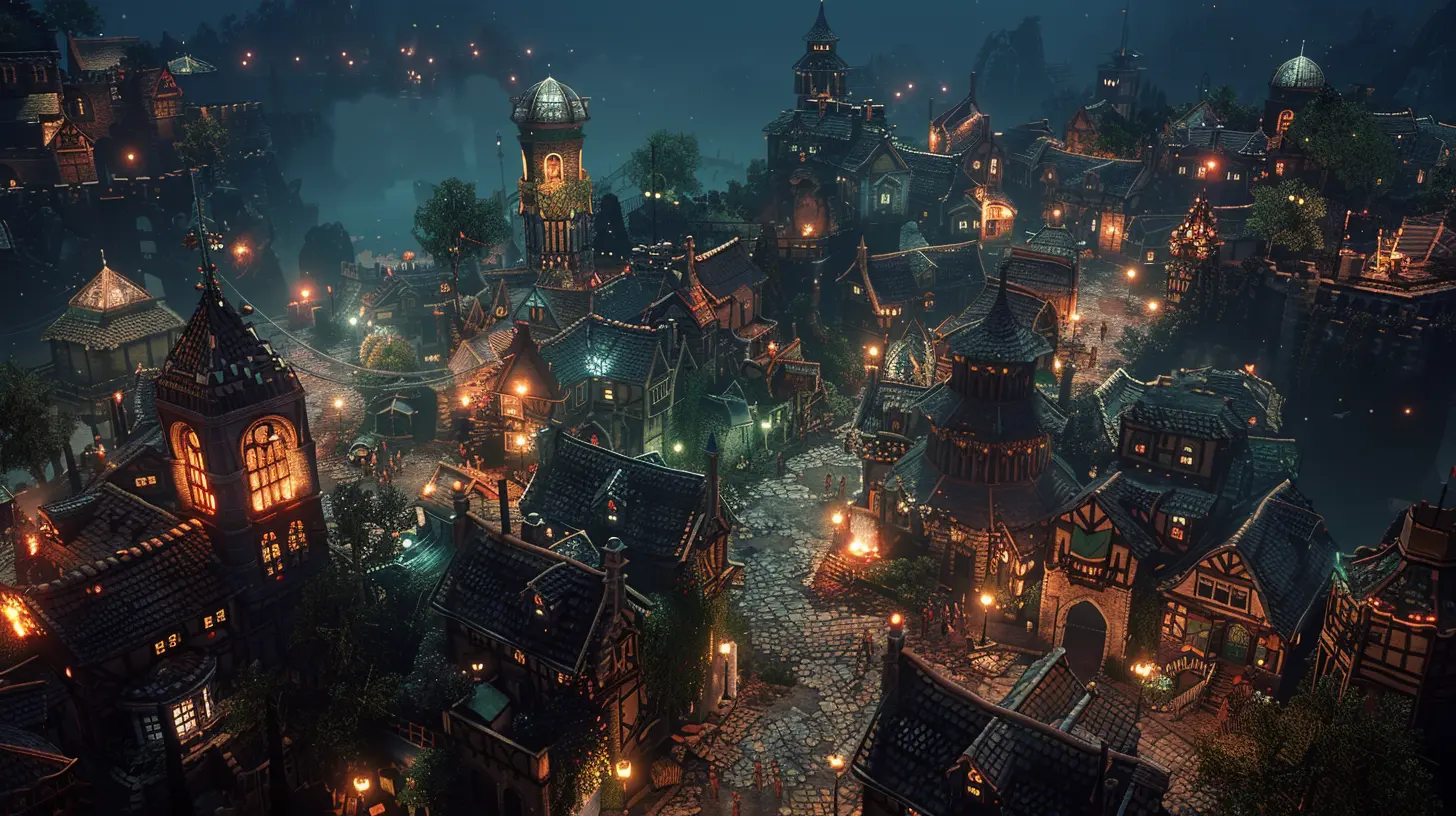
The Power of Emotional Connection
Here's a universal truth: People don’t just bond with games; they bond with the feelings those games create. Emotional resonance is often the secret sauce that fuels die-hard fan bases.Storytelling That Hits You in the Feels
Think about games like The Last of Us, Final Fantasy VII, or Red Dead Redemption 2. These titles aren't just games; they’re emotional rollercoasters. They weave stories where characters don’t just exist, they breathe — and sometimes die — in ways that leave you staring at your screen long after the credits roll.When a game’s narrative makes players feel something deep — joy, heartbreak, nostalgia, rage — it naturally encourages discussion and expression. People flock to fan forums, make tribute videos, write blogs, or even create mods to “fix” or expand the story.
Relatability and Representation
Games that reflect players’ lives or values in a meaningful way tend to create stronger personal connections. If someone sees a part of themselves in a character or in the game’s themes, you better believe they’re going to stand by it like a ride-or-die friend.Games with solid representation (whether of culture, gender, sexuality, or social issues) often build devoted communities that feel seen and heard.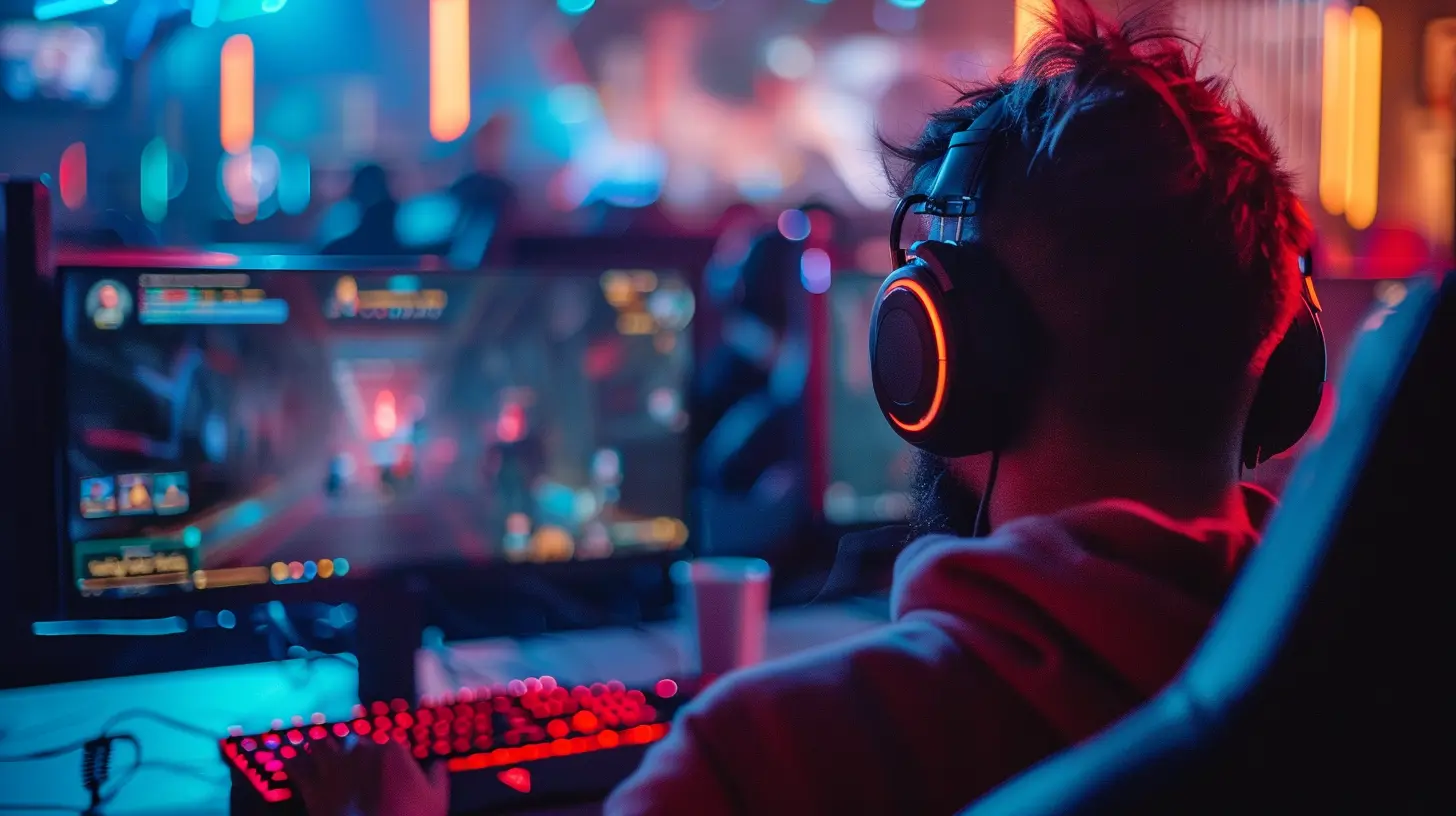
Gameplay That Encourages Bonds
Passion doesn’t just come from great stories — oh no. Sometimes it’s the gameplay that really hooks people. The mechanics, the grind, the strategy — these are catalysts for connection, especially in multiplayer games.Cooperative and Competitive Experiences
Games like League of Legends, Overwatch, and Fortnite live or die by their communities. Why? Because they lean hard into the social aspect. Whether you're teaming up with strangers or squaring off in a battle of wits, these moments create shared experiences — the highs of victory, the agony of defeat, and those chaotic, unforgettable in-between moments.Let’s be real — nothing bonds people faster than screaming through a headset after clutching a last-minute win.
Skill-Based Mastery
There’s another angle to this — pride. People love showing off their skills. Fast-paced, technical games like Dark Souls, Counter-Strike: Global Offensive, or Valorant create communities centered around mastery. The better you get, the more you want to share your victories, drop advice, or stream your gameplay.These types of games give players a sense of ownership — a badge of honor that says, “Yeah, I crushed that boss. I earned this.”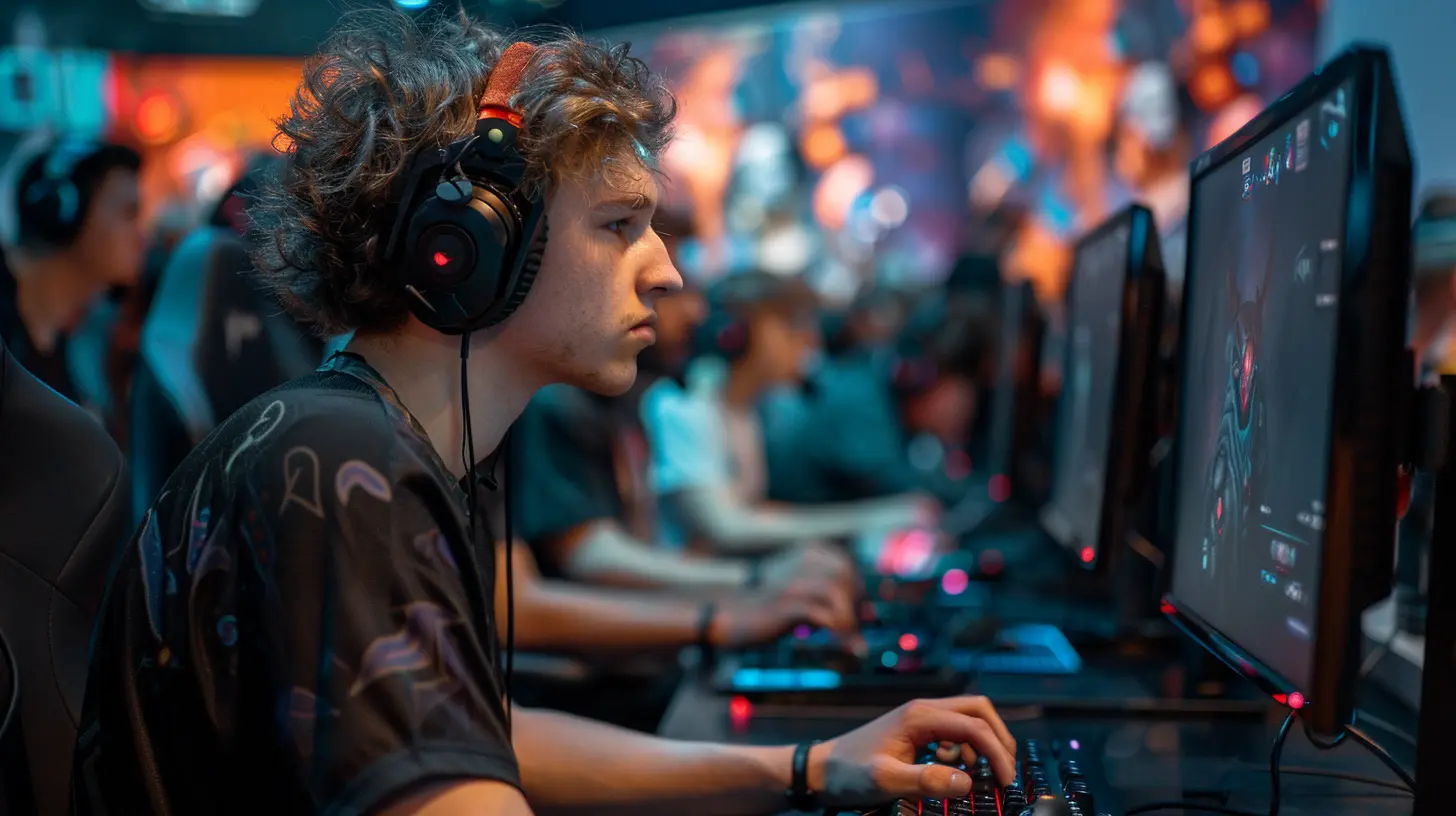
Modding and Customization: The Creative Playground
You ever notice that games that allow modding tend to have communities that practically never die? (Looking at you, Skyrim.)Modding = Community Longevity
When devs hand over the keys and let the community tinker, magic happens. Modding lets players shape the game into something unique — new quests, characters, mechanics, or even entirely new worlds.This kind of freedom doesn't just encourage creativity — it binds the community. People don't just consume the game; they help build it. That's a whole different level of investment.
Personalization Builds Belonging
Even on a smaller scale, games that let you express yourself through custom skins, avatars, or in-game homes (hey there, Animal Crossing) often lead to more vibrant communities. Why? Because personalization breeds ownership. And ownership? That fuels pride and passion.When you feel like a game is "yours," you’re ten times more likely to champion it, defend it, and stick with it.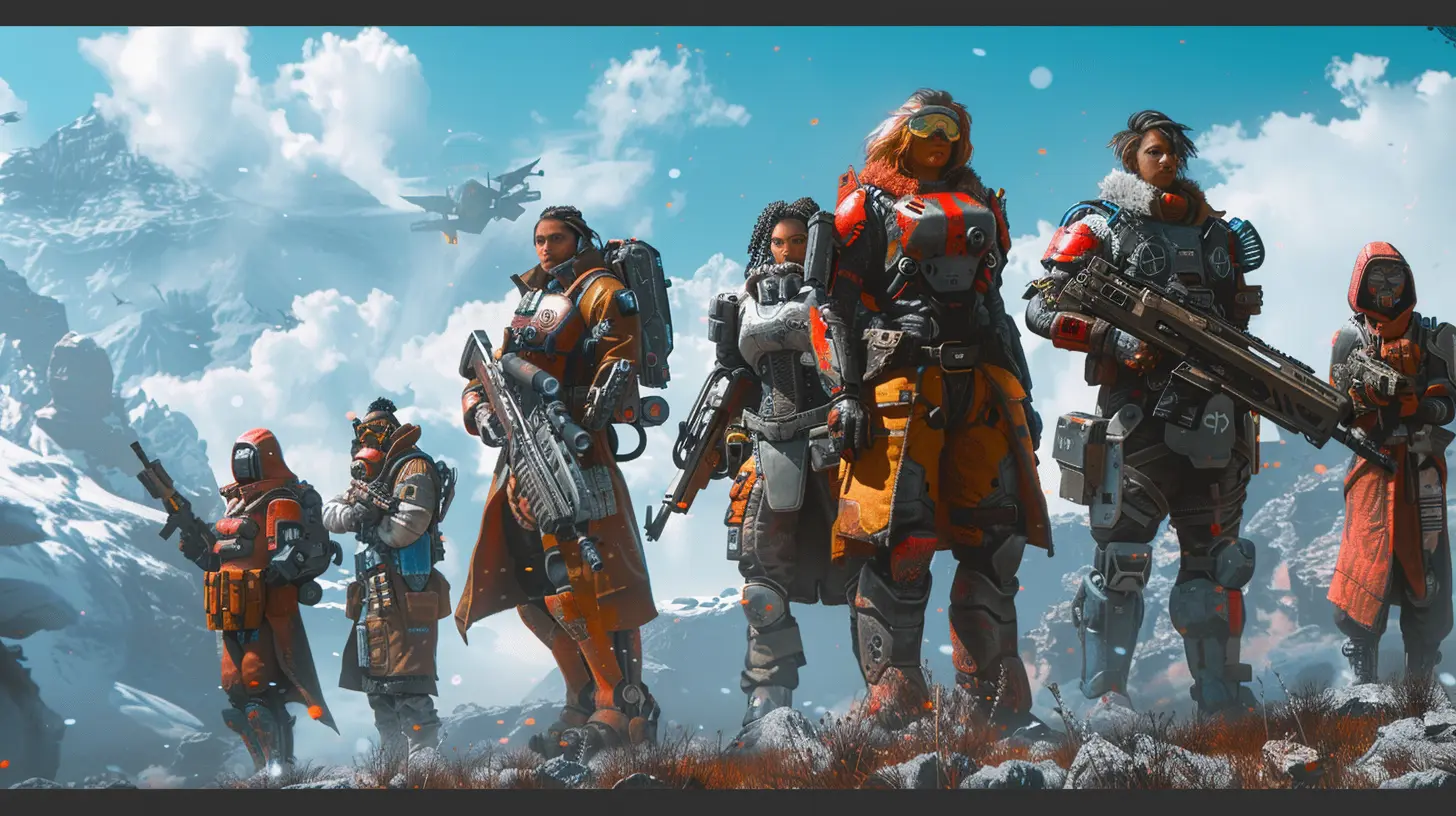
Developers Who Actually Listen
Passionate communities aren’t just born — they’re nurtured. One of the biggest influences? The devs themselves.Transparency Builds Trust
Games like No Man’s Sky had a rocky start but earned massive goodwill by staying transparent and continually updating the game based on feedback. When developers listen, acknowledge, and act on community voices, players feel like their opinions matter. That sense of agency turns casual players into loyal fans.Regular Updates and Active Roadmaps
Look at Destiny 2 or Warframe — even if people have complaints (and trust me, they do), the constant flow of new content, patches, and community events keeps the fire burning. It’s like a relationship — if your partner keeps putting in the effort, you’re more likely to stay committed.Nostalgia and Timing
Let’s not underestimate the emotional rocket fuel that is nostalgia. There’s a reason retro games like Pokemon, Mario, and Zelda still dominate convention halls and Reddit threads decades after release.Right Place, Right Time
Some games drop at just the right moment and hit with the right audience. Whether it’s a cultural trend, a new generation of gamers, or just a killer combination of gameplay and story — timing matters.Gamers who grew up with a particular franchise often carry that love with them into adulthood. And if the game evolves with them (hello, Zelda: Breath of the Wild), it continues to feel relevant and exciting.
The Meme and Viral Effect
Let’s face it — in the age of TikTok, Twitter, and Twitch, being meme-worthy matters more than ever.Shareability Sells
Quirky moments, hilarious glitches, iconic quotes, or jaw-dropping gameplay sequences — these are gold for content creators and meme makers. A game that produces shareable moments is more likely to go viral, and that virality fuels community growth.Think Among Us. It’s a simple game with a simple premise — but it exploded in popularity thanks to memes, streamers, and social sharing.
Inside Jokes = Insider Status
Once a game reaches meme status, it starts to build an “in-group” culture. Players who understand the references feel like they’re part of an exclusive club. That sense of belonging is powerful — people love to feel like insiders.The Role of Streamers and Influencers
Let’s not pretend this isn’t a big deal. The rise of Twitch and YouTube gaming has completely reshaped how communities form and grow.Streamers Create Culture
When popular streamers champion a game, their followers listen — and often jump in. But it’s more than that. Streamers become unofficial ambassadors of a game’s culture. The way they react, the challenges they tackle, the stories they tell — they all influence how the community behaves and what it values.Parasocial Relationships
Here’s where it gets wild — fans often feel a personal connection to their favorite streamers. When a streamer is passionate about a game, that passion becomes contagious. Viewers adopt the game not just for the game’s sake, but as a way to connect with the streamer.Fandom Culture and Community Platforms
Every thriving community needs a home — a digital watering hole where the magic happens.Forums, Subreddits, and Discords
The best games don’t just make room for discussion; they encourage it. Platforms like Reddit and Discord offer places where fans can share theories, swap tips, organize events, or just rant about a patch note.The more interactive and welcoming these hubs are, the more likely fans are to stick around and invite others in.
Fan-Created Content
Fan art, fan fiction, cosplay, music videos — these aren't just outlets for creativity. They’re expressions of love. A game that inspires this kind of output has struck a deeper chord. It becomes more than a game — it becomes a platform for self-expression and identity.So... Why the Difference?
Alright, let’s bring it all together.Some games simply light a spark. They blend emotional storytelling, satisfying gameplay, creative freedom, responsive developers, and a cultural moment to create something more than just a product. They become iconic. They become ours.
Other games? They may check a few boxes but lack that real soul-binding element. Maybe the gameplay is tight but the story is forgettable. Maybe the devs went radio silent. Or maybe it just didn’t land with the right audience at the right time.
At the end of the day, passionate communities form around games that make players feel something meaningful — joy, challenge, nostalgia, belonging. That’s what truly sets them apart.
Final Thoughts
There’s no single recipe for creating a passionate game community — but when developers create a game that's expressive, emotive, and interactive... and when they nurture it with love, updates, and openness... the odds go way up.As players, we’re drawn to more than mechanics. We want stories that leave scars, gameplay that tests us, and spaces where we can be ourselves. When a game gives us that? We give it our all.
So next time you see a game fanatically defended online or proudly displayed in a cosplay contest — don’t roll your eyes. Understand that behind every passionate gamer is a game that made them feel alive.
all images in this post were generated using AI tools
Category:
Gaming CommunitiesAuthor:

Luke Baker
Discussion
rate this article
1 comments
Xavi Mullen
This article beautifully captures the essence of community in gaming. It’s fascinating how certain games ignite such deep connections and passion among players. The sense of belonging, shared experiences, and collective achievements truly transform how we engage with games, fostering a unique and vibrant community spirit. Great insights!
November 4, 2025 at 4:08 AM

Luke Baker
Thank you for your thoughtful comment! I'm glad you resonated with the article's exploration of community in gaming. It’s incredible how these connections enhance our gaming experiences!
